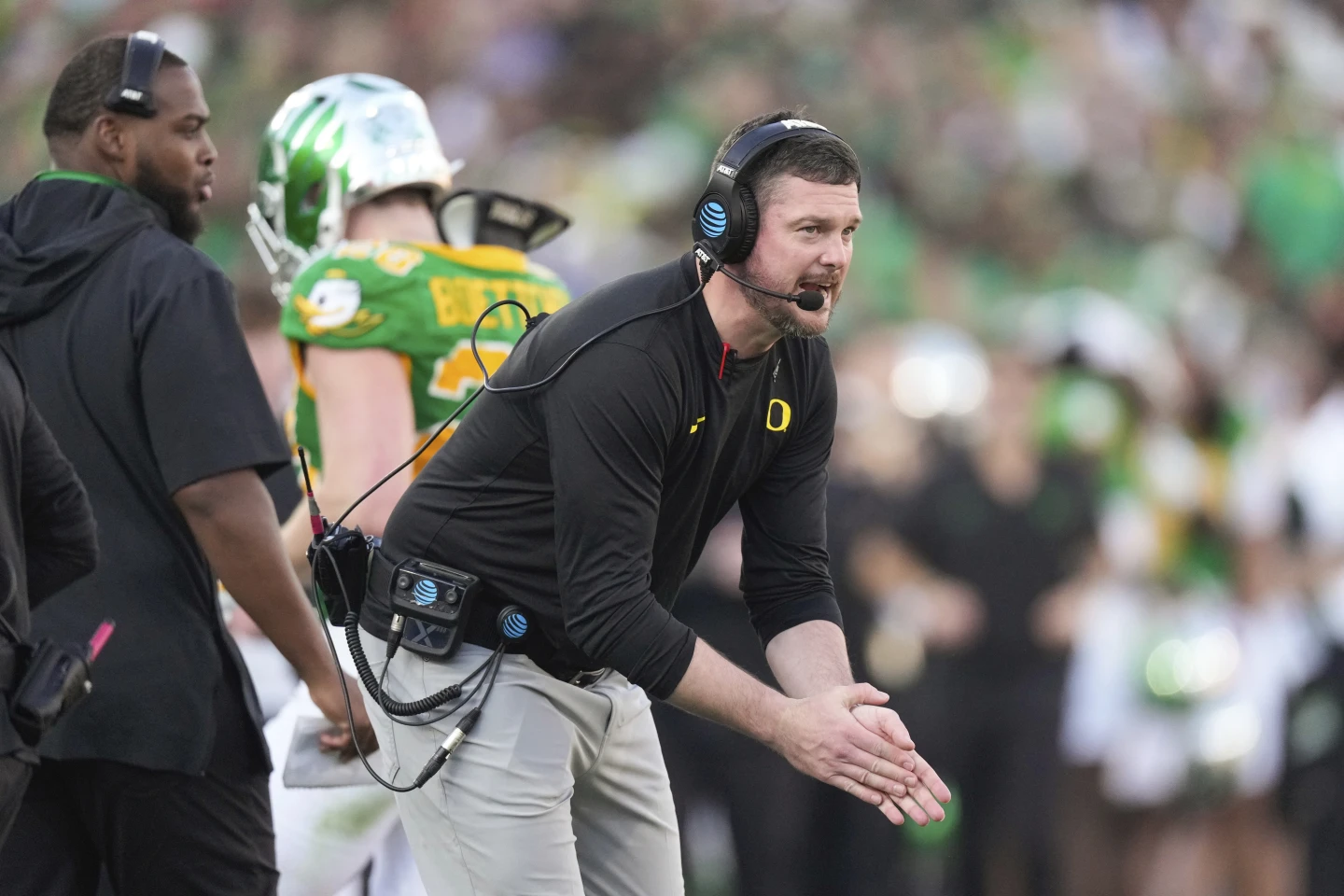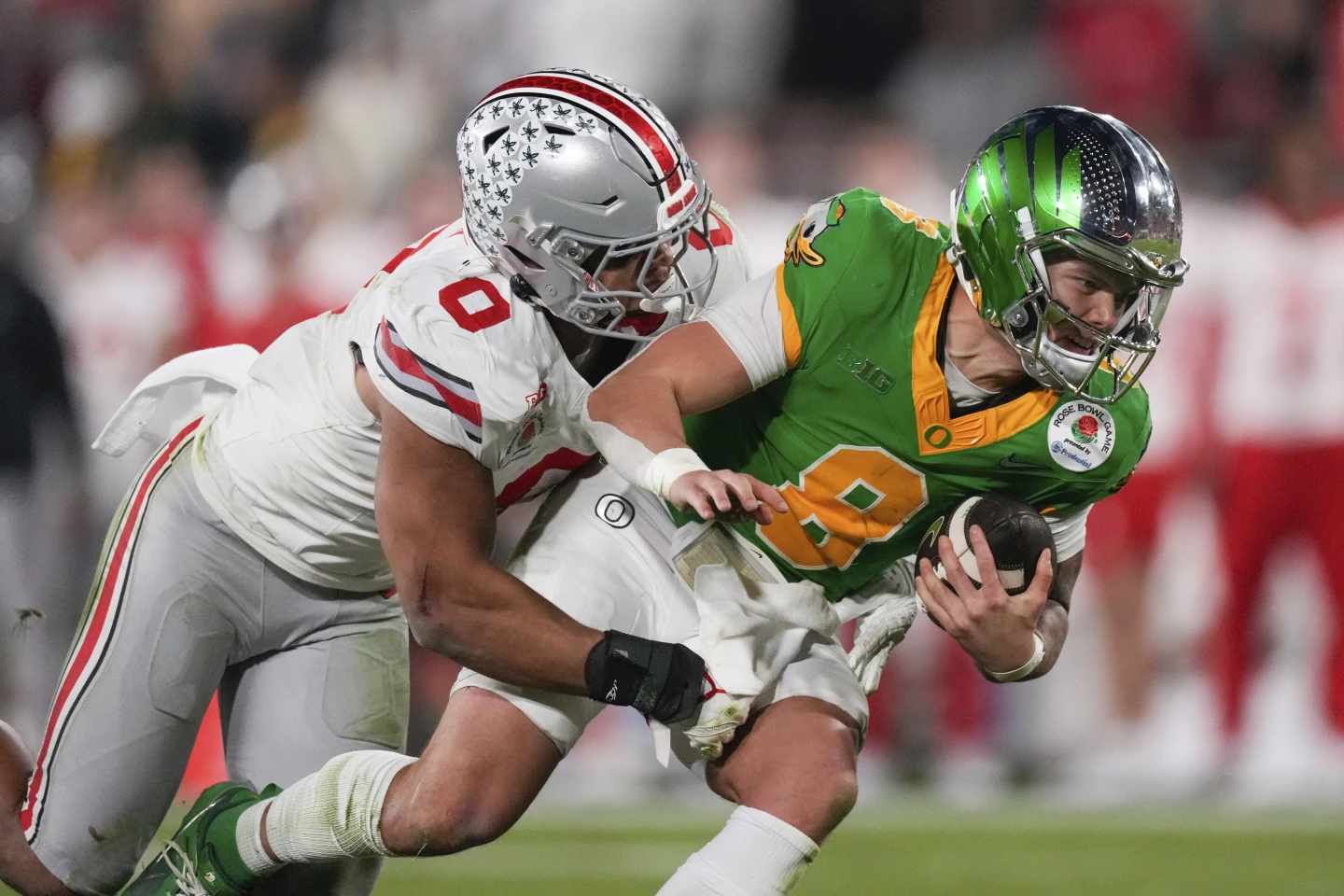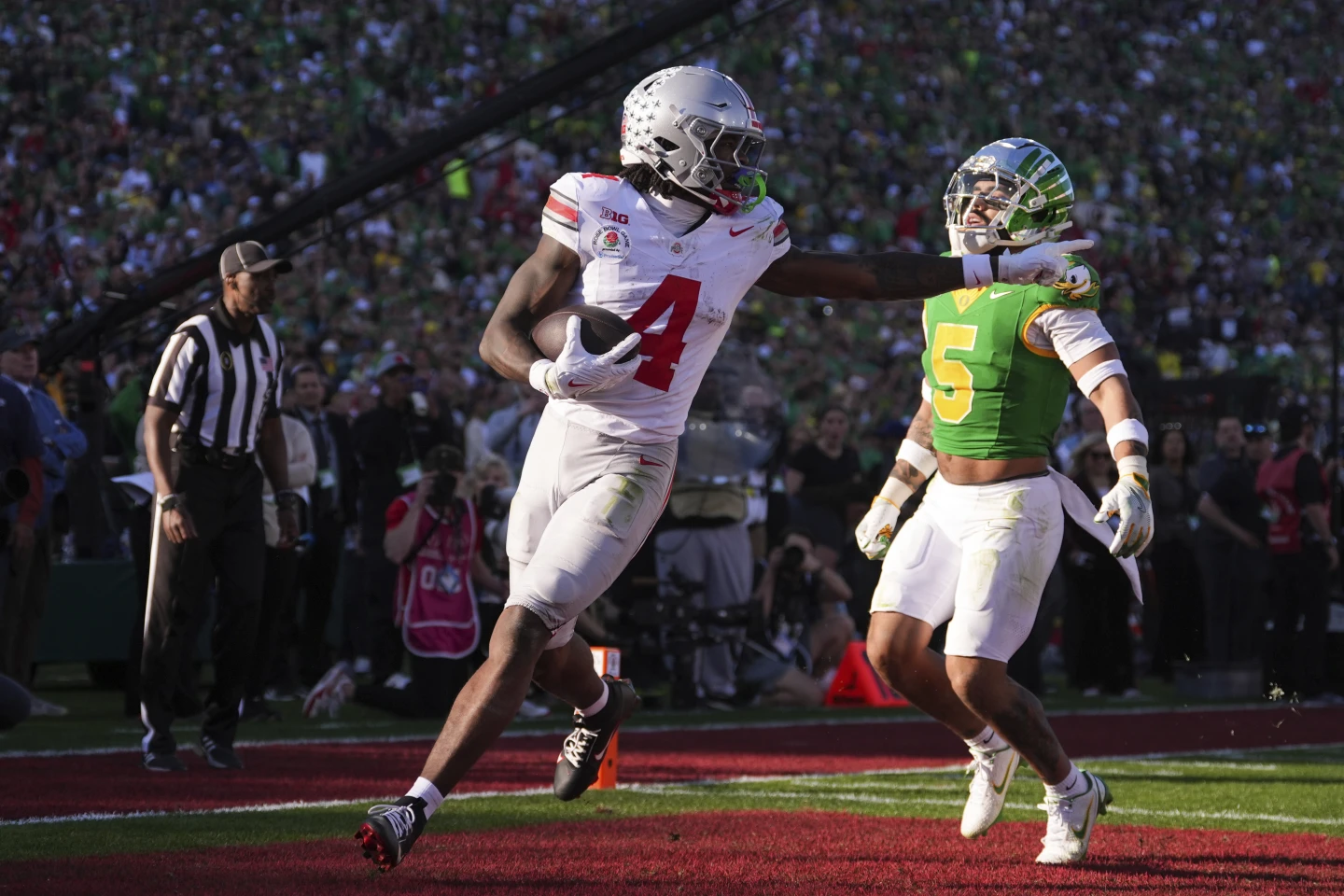Oregon faced many challenges but managed to remain unbeaten and secure the top seed in the College Football Playoff. However, Ohio State’s strong start on both offense and defense in the first half proved too much for the Ducks to handle.
The Big Ten champions defeated Oregon 41-21 in the Rose Bowl on Wednesday night, ending Oregon’s hopes of winning its first national championship.
“It was definitely shocking. They came out and punched us in the mouth. We tried to make adjustments but it was definitely different,” said defensive back Kobe Savage.
The Ducks (13-1) fell behind early, just three plays into the game, when Ohio State’s Jeremiah Smith caught a 45-yard pass from Will Howard for a touchdown. Oregon struggled to recover from there.
The Ducks allowed scores on six of Ohio State’s first seven drives. Offensively, Oregon only reached Ohio State’s side of the field once in its first six drives, with four three-and-outs before finally scoring on their seventh possession.
“We didn’t adjust fast enough,” said Oregon’s head coach, Dan Lanning.

In their earlier meeting on October 12, quarterback Dillon Gabriel had four completions of at least 28 yards in the first half of Oregon’s 32-31 win. This time, Gabriel’s first long completion didn’t come until there were only 30 seconds left in the half — a 44-yard pass to Traeshon Holden.
“They dropped eight. First game they played us man. That was their game plan to stop us and they did it to the best of their ability and they succeeded,” said receiver Tez Johnson, who had five catches for 32 yards after catching seven passes for 75 yards in the previous game.
Ohio State made nine plays of at least 15 yards in the first half, seven of them passing and two rushing, as they took advantage of miscommunications in Oregon’s secondary.
“Every time we had bad eyes or miscommunication they capitalized on those moments,” Savage explained.
Oregon, which led the Big Ten and was ninth in the nation for third-down conversions, only managed to convert one of four third downs in the first quarter and five of 12 in the first half.
Gabriel pointed out that not being able to create big plays and stay on the field early cost the team dearly. “You plan to create explosives, be really good on situational football and move the chains that way.
We just didn’t do that on third down,” Gabriel said. He completed 29 of 41 passes for 299 yards and two touchdowns. “They had a great plan, like coach said. But if you don’t go get the third you can’t move forward.”
Gabriel was sacked eight times, a sharp contrast from the earlier game when he had a clean pocket. Oregon’s struggles in the second half were partly due to being forced to pass more after running back Jordan James was injured in the first half.
Evan Stewart, the Ducks’ second-leading receiver during the season, was unable to play due to a back injury suffered in the Big Ten Championship game against Penn State on December 7. Stewart participated in pregame warmups but wasn’t cleared to play by the trainers.

“It was very shocking because you got to think at Autzen, it was 7-7, 14-14, 21-21. It was pretty back and forth all game long, so to see them run up the score a little bit and us not have too much juice, it was definitely a different atmosphere we hadn’t been in this year, for sure,” Stewart said.
Despite the loss, Oregon had a successful first season in the Big Ten. However, the Ducks are set to lose several key starters, including Gabriel, who transferred from Oklahoma and was a Heisman Trophy finalist.
“I feel like the seniors set a great standard this season just to show how tough you can be and that it can be done. To go undefeated in your first time in a tough conference like the Big Ten,” Savage said. “I feel like there’s a lot of underclassmen and a lot of young guys that are going to come in and fill those roles and also maintain that standard.”
